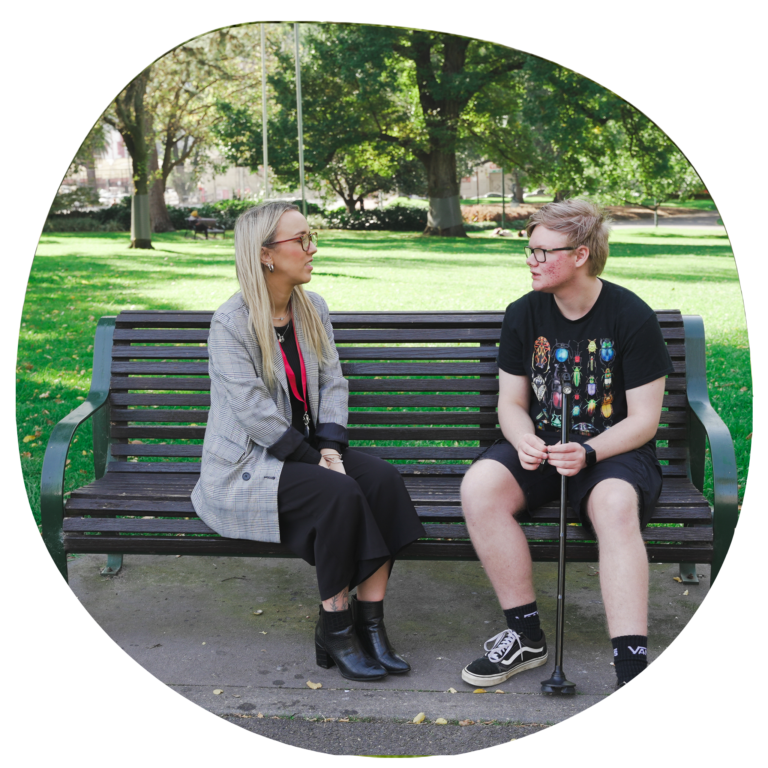Disabled young people have told us what they wish their families and carers would do to help them feel more empowered.
Here are some ideas to support your young person to speak up and take action when something isn’t right with their NDIS supports or services.
- Talk to the young people before you schedule meetings with support workers, or other people in their lives. This can give them a sense of control.
- Trust that the young person knows their needs best.
- Don’t intervene or take over and do something for the young person, unless they ask you to.
- Know that the young person’s way of solving a problem might be different from yours. Try to support and encourage their ideas.
- If you say or do something disempowering, acknowledge your mistake and let the disabled young person know that you’re committed to acting differently next time.
